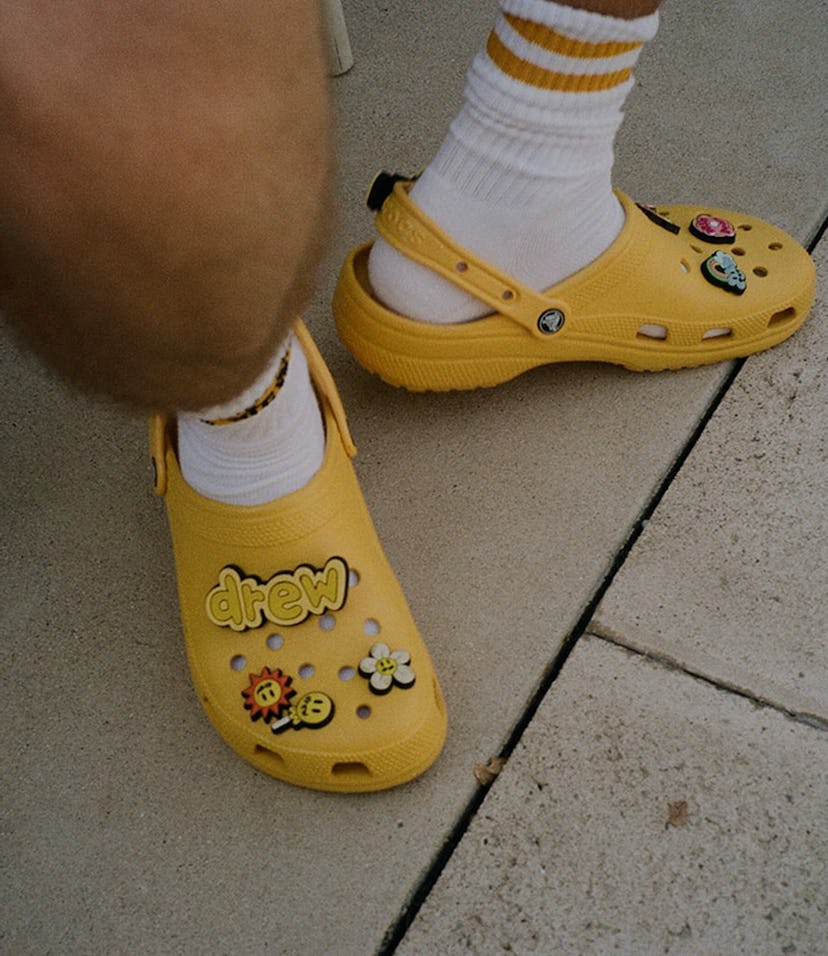Style
Fake Crocs are now a thing thanks to the insatiable demand for real ones
Crocs has taken brands like Skechers and Loeffler Randall to court for trademark infringement.

Crocs have become the new “it” shoe, rising to such popularity that now copycat versions of the rubber clogs are flooding the market. As reported by The Fashion Law, Crocs filed a 175-page complaint with the U.S. International Trade Commission on June 8, claiming that two dozen companies — including Skechers and Loeffler Randall — are engaging in the unlawful importation and sale of “certain footwear products and packaging that violate registered trademarks used in connection with certain Crocs shoes.”
Although Crocs have been around for years, the shoe’s recent popularity explains why other brands might be seeking to make a profit off the chunky silhouette. Collaborations with Post Malone, Bad Bunny, Justin Bieber, Diplo, and even Balenciaga have marketed the rubber clogs to nearly every consumer available — and have done so successfully, selling out drops in minutes and leading Crocs’ share price to an all-time high. According to TFL, the hype surrounding Croc’s offerings is so great that the brand alleges that “the Classic Clog garnered nearly 25 billion observed media impressions in 2020, alone.” Now is the perfect time to cash in on the growing demand for the clog, if court cases allow.
Crocs goes to court — Addressing not only the aforementioned collaborations, but famous Crocs fans like Shia LaBeouf and Whoopi Goldberg, Crocs claims that the “unusual and distinctive appearance” of its clog-style shoe “is, itself, responsible for generating much of the publicity that [the company] receives,” having caused “an uproar in the fashion footwear world [and] making the classic Crocs shoe a source of unending debate,” reports TFL. Here, the unique ugliness of Crocs stands as a defense against its copycats, which could never hold a candle to such polarizing footwear.
As a result, Crocs claims its shoes, including its “CROCS” word mark, “the three-dimensional configuration of the outside of an upper of a shoe, the textured strip on the heel of the shoe, [and] the decorative band along the length of the heel strap,” are all distinctive enough to be recognized as belonging to the brand, TFL writes. And in a not so humble note, Crocs also claims that there are already an “infinite number” of footwear styles similar to its rubber clogs — so much so that the copycat market “requires constant attention,” and as a result, “each year, customs and other enforcement officials around the world seize hundreds of thousands of shoes that improperly bear” Croc’s trademarks.
Per TFL, Crocs claims that the infringing products are manufactured “not due to competitive need, but because of the significant goodwill that the Crocs marks have accumulated over the past two decades during their use by Crocs.” And as other companies try to cash in on the success of Crocs — causing “intentional” consumer confusion, Crocs complains — the brand must protect its products and audience.
Locking up the Crocs — To defend the “authentic Crocs experience,” TFL reports, Crocs is seeking a General Exclusion Order to exclude from entry into the U.S. “all imported shoes that violate Crocs rights in [its] asserted trademarks.” The brand is also seeking cease-and-desist orders directing the respondents “to halt the importation, marketing, advertising, demonstrating, warehousing of inventory for distribution, sale, and use of imported articles in the U.S.”
Crocs’ competitors — or rather, would-be competitors — are quickly learning that while Crocs may offer fun footwear alternatives, the brand means business when it comes to defending its namesake shoes.